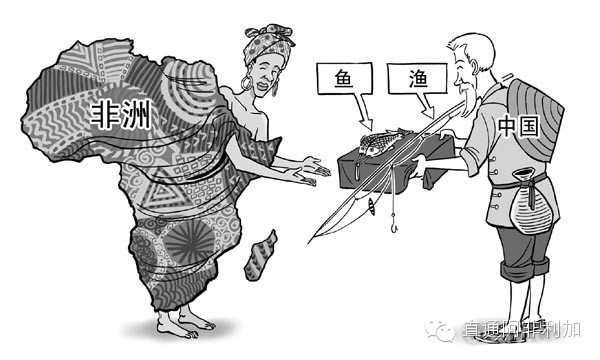
Not long ago, the Professional Ethics Research Institute of South Africa with its headquarters in Pretoria issued a survey report completed in February, 2014, saying “African opinions on Chinese enterprises in Africa”.
As reported by Junge Welt, a German medium, on April, this survey was completed under the cooperation with United Nations Global Compact Kenya Branch. In 2013, 1056 handlers from 15 African countries at the south of the Sahara Desert who always keep an economic cooperative relationship with China were surveyed via the network.
In this report, there are no quite obsequious descriptions of Chinese entrepreneurs investing in Africa. For all of 6 major questions, the negative answers given by the respondents are more than the positive answers. Although the assessment on the reputation of Chinese enterprises in Africa basically holds the line (43.3% for negative answers and 35.4% for positive answers), the assessment on the quality of Chinese products and services is not high (55.9% for negative answers and 22.7% for positive answers). Only 11.1% of all respondents believe that Chinese enterprises care the environmental protection, while 53.9% hold the opposite opinion. For social and economic responsibilities that Chinese investors undertake, the attitude of African handlers was slightly optimistic—however, the positive assessment only took 28.3%.
The report said that in spite of that, the positive effect of China’s investment still wins the recognition and Chinese enterprises are regarded as the trustworthy cooperative partners. For instance, the report shows that 56% of respondents think Chinese enterprises create jobs for African people. As for respecting the basic rights of the hired, respondents hold a totally opposite opinion.
The report summed up the opinions of respondents from South Africa, Nigeria and Kenya, three economic “railway engines” in African, from the general assessment. The result shows that the positive impression left by Chinese investors is partially improved. It’s worth noting that South Africa has regarded China as a “South-South rival”. The report shows that 14% of surveyed handlers from South Africa, 21% from Nigeria and 60% from Kenya individually benefit from Chinese enterprises. 26% of Nigerian respondents and 62% of Kenyan respondents think Chinese entrepreneurs are trustworthy. Since 2005, China’s direct investment in Africa has increased by 30 times. In terms of political appraisal of China’s investment for the effect on the local development, respondents hold a more positive opinion; the proportion of respondents holding such opinion is respectably 29% for South Africa, 46% for Nigeria and 77% for Kenya.
What can we learn from this? It is reported that the preparer of this report proposed three suggestions to the Chinese Government and entrepreneurs. Firstly, China shall increase the consciousness of economic, social and ecological responsibilities. Secondly, Chinese and African peoples shall strengthen the mutual understanding to figure out more satisfactory solutions. In terms of this issue, two sides may make full use of China-Africa Cooperation Forum in a more effective manner. Finally, it will be more beneficial if African handlers and political leaders can attempt to let African people share the earnings from the foreign investment.

中国昊远